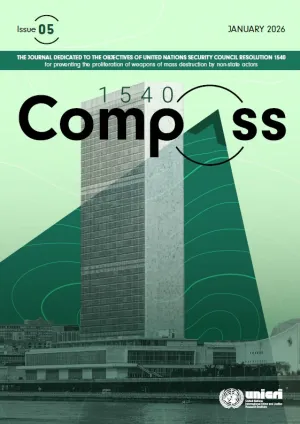
About the Project
The Digital Rehabilitation Project, led by UNICRI in partnership with the Government of Japan, explores how innovative technologies can enhance rehabilitation programmes within correctional facilities. The project supports Member States in developing responsible, human rights-compliant strategies for integrating technology into prison rehabilitation activities.
Why Digital Rehabilitation?
Prisons worldwide face challenges such as overcrowding, limited resources, and the need for effective reintegration programmes. Digital tools offer innovative solutions by expanding access to education, vocational training, and mental health support, while also strengthening family and community connections. Technologies such as virtual reality (VR), and digital learning platforms have the potential to transform rehabilitation efforts, but their implementation must be ethical, secure, and aligned with international human rights standards.
Project Objectives
The project aims to:
• Improve rehabilitation outcomes by integrating digital solutions into correctional programmes.
• Support policymakers and practitioners in designing evidence-based, ethical, and human rights-compliant digital rehabilitation strategies.
• Enhance the capacity of correctional staff to use digital tools effectively and responsibly.
• Develop a scalable model that can be adapted to other national prison systems.
• Ensure that digital rehabilitation technologies are inclusive and accessible, particularly for vulnerable groups.
Project Activities
To achieve these objectives, UNICRI conducted in-depth research on the use of digital technology in prison rehabilitation, resulting in the report Digital Rehabilitation in Prison. The report examines the potential benefits and risks of introducing new technologies in prisons to facilitate prisoner rehabilitation, and presents practical guidelines for policymakers and correctional practitioners.
Furthermore, the project envisages training workshops and capacity-building activities, including targeted support for correctional systems in Namibia and Thailand in designing a national digital rehabilitation strategy. Experts and stakeholders collaborate on integrating digital tools into prison management, addressing key concerns related to security, equality, and reintegration challenges. The project also will introduce a pilot programme in selected prisons, evaluates the impact of digital rehabilitation tool, and provides a scalable model for other countries seeking to modernise their correctional systems.
Human Rights and Ethical Considerations
A human rights-based approach is central to this project. The integration of digital tools in prisons must:
• Avoid reinforcing biases or discriminatory practices.
• Ensure accessibility for vulnerable populations, including women and persons with disabilities.
• Comply with international legal frameworks, including the Nelson Mandela Rules on the treatment of prisoners.
• Promote digital literacy among correctional staff and inmates.
Project Impact and Future Vision
The Digital Rehabilitation Project is shaping the future of modern, effective, and humane correctional systems. By leveraging responsible and ethical technology, this initiative aims to:
• Enhance rehabilitation outcomes and reduce recidivism.
• Support criminal justice reform efforts globally.
• Provide a replicable model for other countries considering digital rehabilitation strategies.
Through continued collaboration with governments, prison authorities, and technology experts, UNICRI and Japan remain committed to advancing innovative, ethical, and sustainable rehabilitation solutions worldwide.


